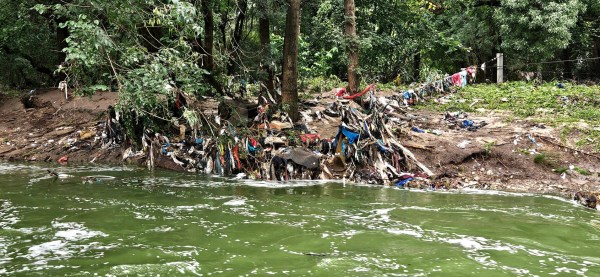
The Hennops River in Tshwane has recently experienced a dramatic transformation, turning a disturbing shade of green due to a surge in algal blooms. This visible change is not just an alarming sight but a signal of a deepening environmental crisis that could have far-reaching consequences for both the ecosystem and local communities.
Algal blooms are caused by excessive nutrients in the water, often from agricultural runoff, untreated sewage, and industrial waste. These blooms deplete oxygen in the water, creating “dead zones” where aquatic life cannot survive. The green tint of the river is a clear indication of high concentrations of harmful algae, which not only affects the quality of water but also poses a serious risk to human and animal health.
Local authorities and environmental experts are raising concerns about the worsening state of the Hennops River. The blooms have been linked to rising levels of pollution and the lack of effective water management. The river, once a vital source of water for surrounding communities, is now becoming increasingly unsuitable for consumption or recreation. Contaminants from the algae could cause skin rashes, respiratory issues, and, in some cases, more severe health problems if ingested.
In addition to the immediate health risks, the algal blooms are disrupting the local ecosystem. Fish populations are declining, and biodiversity is suffering due to the lack of oxygen in the water. This not only threatens the river’s aquatic life but also impacts the livelihoods of those who depend on fishing and agriculture in the area.
Environmental organizations are calling for urgent action to address the pollution in the Hennops River. Efforts to improve wastewater treatment, reduce agricultural runoff, and enforce stricter regulations on industrial waste are seen as key measures to prevent further ecological damage. Without intervention, the river’s ecosystem could collapse, leading to long-term environmental and economic consequences for the region.
The situation in Tshwane serves as a stark reminder of the growing environmental challenges facing South Africa’s rivers and water resources. If not addressed, similar crises could occur in other areas, affecting millions of people who rely on clean water for survival. Immediate action is needed to protect the Hennops River and preserve South Africa’s valuable natural resources.

